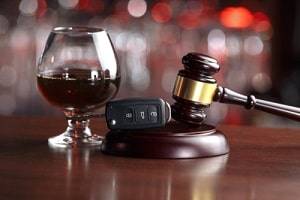
With the winter holidays here, even during a pandemic, it can be tempting to celebrate the new year with one-too-many alcoholic drinks. Despite these extenuating circumstances, law enforcement will be particularly vigilant about pulling over anyone they suspect of driving while intoxicated (DWI). And if you have already been convicted of that or a related crime, you could face even harsher penalties as a repeat DWI offender. For instance, a second DWI conviction alone is classified as a Class E felony, which means you could face between one and four years in jail and steep fines in addition to license revocation and other disciplinary measures. The penalties only get worse from there if you end up charged with a third DWI or other multiple DWIs after previous similar convictions. As such, there are a few very important things to understand about repeat DWI offenses this holiday season.
What Makes You a Repeat DWI Offender According to New York Law?
By New York law, a repeat DWI offender, at least after the first or second conviction, is any person who has been convicted of an alcohol-related driving crime or other serious driving offense within the last 10 years. This means that the definition of a prior related conviction is much more expansive here, enabling more than just a traditional DWI conviction to count toward that requirement. For instance, all the following convictions are considered serious driving offenses, which could mean that a misdemeanor first-time DWI charge might actually be a repeat offense, elevating it to a felony:
- Any crime involving your vehicle that resulted in serious physical injury or death of another person is viewed as a serious first-time offense in this context even if it might not have involved DWI or alcohol in any way.
- DWI with a blood alcohol content (BAC) of .08 percent or higher is considered a first-time DWI offense.
- DWAI (driving while ability impaired by a controlled substance) also does not involve alcohol; you might have been driving under the influence of a drug that impaired your driving in a dangerous way. The same goes for a combination of drugs and alcohol.
Note that a second or third related offense must occur within 10 years of the first-time or second-time conviction in order for it to be considered a repeat offense. However, a fourth traffic or driving offense that occurs within 15 years of the original offense will be treated as a fourth DWI offense. If you manage to drive safely without any related offenses for more than 10 years, then your record is cleared of those charges and you are reset to zero in terms of DWI-related offenses.
Contact a New York Criminal Defense Lawyer
The holidays are upon us, and while there is not much to celebrate about 2020 other than maybe the year coming to an end and a vaccine becoming available, you might still find yourself partaking in a bit too much drinking this season. If that is the case and you find yourself pulled over for suspected DWI, you should contact a knowledgeable Brooklyn DWI defense attorney immediately. Contact JOEY JACKSON LAW, PLLC, at 833-563-9522 right away to see how we can help you with your case and reduce your charges or get them dropped altogether.
Sources:
http://nyscriminallaws.com/vt/section1192.htm
https://www.dui-usa.drinkdriving.org/New+York_dui_drunkdriving_laws.php
https://nysba.org/NYSBA/Coursebooks/Fall%202014%20CLE%20Coursebooks/Handling%20the%20DWI%20Case%20in%20New%20York/MATERIALS%20(FINAL).pdf
